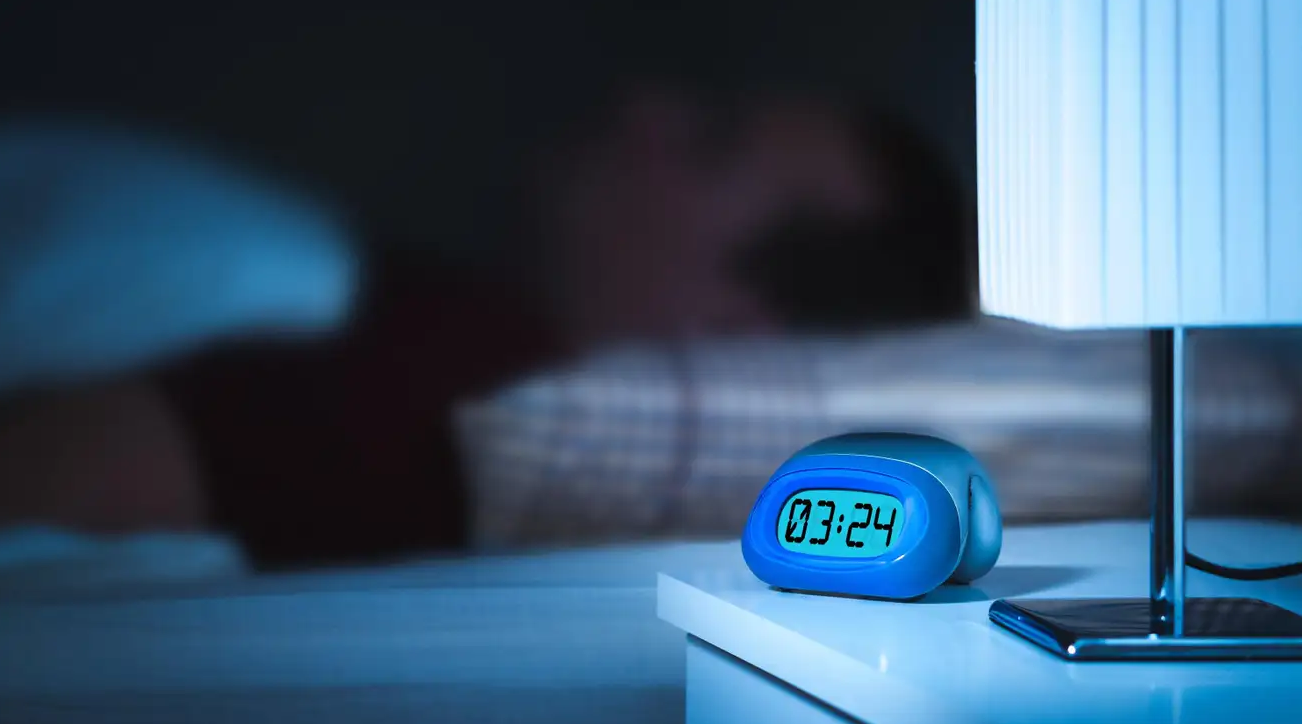
When you can’t sleep, the clock laughs at you. “At least I’m getting seven hours,” you might think as you lie down, but if you’re still awake an hour later, then you’re only getting six hours, and six isn’t a lot. And if you’re still not tired, then it’s going to be less than six, and eventually you’re just lying in bed thinking about how terrible you’re going to be in the morning.
If this sounds familiar, it’s not just you. Sleep scientists have long recognized the idea of “losing sleep over losing sleep”, and it’s a well-known factor that can contribute to insomnia (失眠). It’s not necessarily the cause of your sleep problems, but it can make them worse. For example, say you have some minor issue that makes it hard to sleep. You get into a cycle of stressing out over the clock at night, getting poor sleep, and then being tired the next day. Then you begin to dread bedtime, because you know it’s going to happen all over again.
Before you know it, you may be taking medicines to help you sleep, which have their own health risks. A recent study found that “time-monitoring behavior”, as they called clock-watching, may be driving people to take medicines they wouldn’t otherwise need. So what can you do instead?
One of the authors of that study says that it can help to promise yourself you won’t look at the time. Cover your alarm clock’s display, or if you use your phone to check the time, put it out of reach. If the alarm hasn’t gone off yet, it’s still nighttime, and that’s all you really need to know.
Without the clock, you might worry that you don’t know if you’re getting enough sleep or not. But even with the clock, you aren’t necessarily counting the hours accurately. Those hours we think we’re fully awake, we’re often drifting in and out of sleep, and we’re getting more of it than we think we are.
本时文内容由奇速英语国际教育研究院原创编写,未经书面授权,禁止复制和任何商业用途,版权所有,侵权必究!(作者投稿及时文阅读定制请联系微信:18980471698)1.What’s the best title for the text?
A What Happens If You Wake Up Before Your Alarm
B Don’t Watch The Clock When You Can’t Sleep
C How The Clock Affects Your Sleeping
D How To Fall Back Asleep
解析:选B。B主旨大意题。根据全文内容可知,文章主要介绍了睡不着的时候反复看时间对睡眠不利,再给出了一个替代的方法,结合选项可知,B“不要在睡不着的时候看时间”最符合文意。故选B。
2.What does the author suggest doing to stop worrying?
A Preventing looking at the time.
B Keeping away from the phone.
C Knowing when the nighttime is.
D Counting the hours accurately.
解析:选A。A细节理解题。根据最后两段内容可知,不看时间会有帮助,即防止自己看时间会帮助你停止对于失眠的担心。故选A。
3.What does the underlined word “dread” probably mean?
A Forget.
B Reduce.
C Miss.
D Fear.
解析:选D。D词义猜测题。根据划线部分所在段落可知,假设有个小事让你难以入眠,然后你睡眠不好,第二天就变得很累,到了晚上,你压力过大,又睡不好,从此进入一个死循环。由此可知,当你知道这一切还会再次发生,你就会变得“害怕”睡觉。故选D。
4.How does the author start the passage?
A By listing some evidence.
B By comparing different views.
C By presenting a phenomenon.
D By stating his/her experiences.
解析:选C。C推理判断题。根据第一段内容及第二段第一句“If this sounds familiar, it’s not just you.”可知,作者先给读者描述了一种现象,然后对文章进行展开描写。故选C。